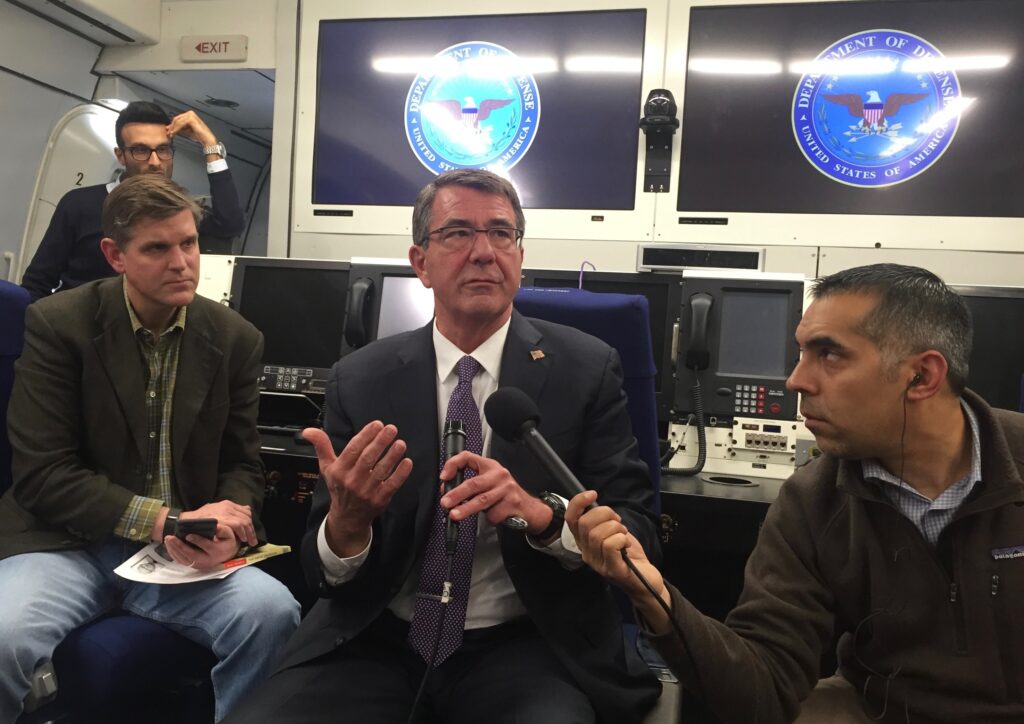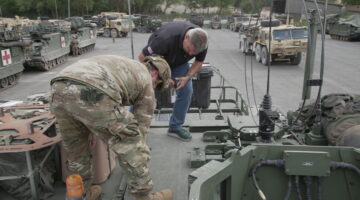 STUTTGART, GERMANY: In a last minute-announcement before his meeting with 10 anti-Daesh coalition members, Defense Secretary Ash Carter told reporters that Norway has made a “very significant” pledge to contribute to the fight. He also hinted that American troop commitments would increase in the future.
STUTTGART, GERMANY: In a last minute-announcement before his meeting with 10 anti-Daesh coalition members, Defense Secretary Ash Carter told reporters that Norway has made a “very significant” pledge to contribute to the fight. He also hinted that American troop commitments would increase in the future.
“Norway’s decision to deploy special operations forces to Jordan to train vetted Syrian Arab Sunni fighters and to send a medical team to Northern Iraq bolsters the coalition at a critical moment in the campaign,” Carter said in a statement after his session with reporters aboard the E-4B aircraft he flew here in. “The added forces are a welcome contribution from a stalwart ally, and another sign of the growing momentum in the campaign to defeat ISIL.”
Carter also said that Norwegian Defense Minister Eriksen Soreide has now been invited to attend the Wednesday meeting in Stuttgart, joining the 10 other states coming. At filing time, officials could not confirm if she would attend.
Norway would join the Five Eye countries with which America shares intelligence — Australia, Canada, New Zealand, the U.K. — and Denmark, France, Germany, Italy, the Netherlands, and Spain.

I asked Carter if increased US focus on logistics in support of the Iraqi campaigns to retake Mosul and the rest of Iraq from Daesh was likely to mean more US troops in Iraq, above and beyond the additional 200 detailed by President Obama.
His answer certainly sounded like a yes: “We are always looking to build momentum on this. As the campaign builds and more opportunities are presented, we are going to do that.”
Finally, Carter restated his strong opposition to the House draft of the National Defense Authorization Act, saying that House Republicans had created a bill that took money from the wartime spending bill known as OCO (Overseas Contingency Operations) “during wartime.” The bill would fund operations for only seven months of 2017, shifting $18 billion to what HSC Chairman Rep. Mac Thornberry calls modernization and readiness.
That $18 billion shift is what really got Carter going. “In addition, the proposal is take the money out of the wartime funding account during wartime,” he said, sounding a bit amazed that the GOP would do such a thing. “That is objectionable on the face of it.” He did not say if he would recommend President Obama veto the bill as is (which the president did last year), but it certainly sounded like it.

